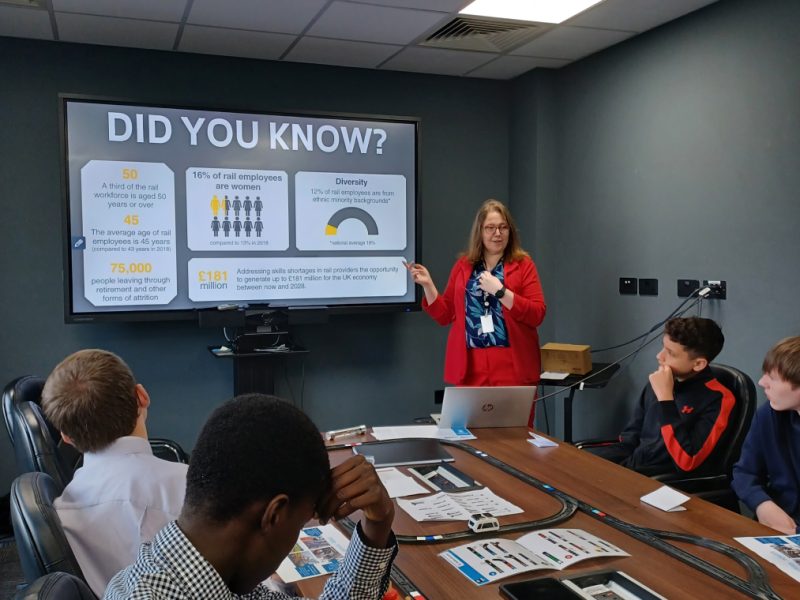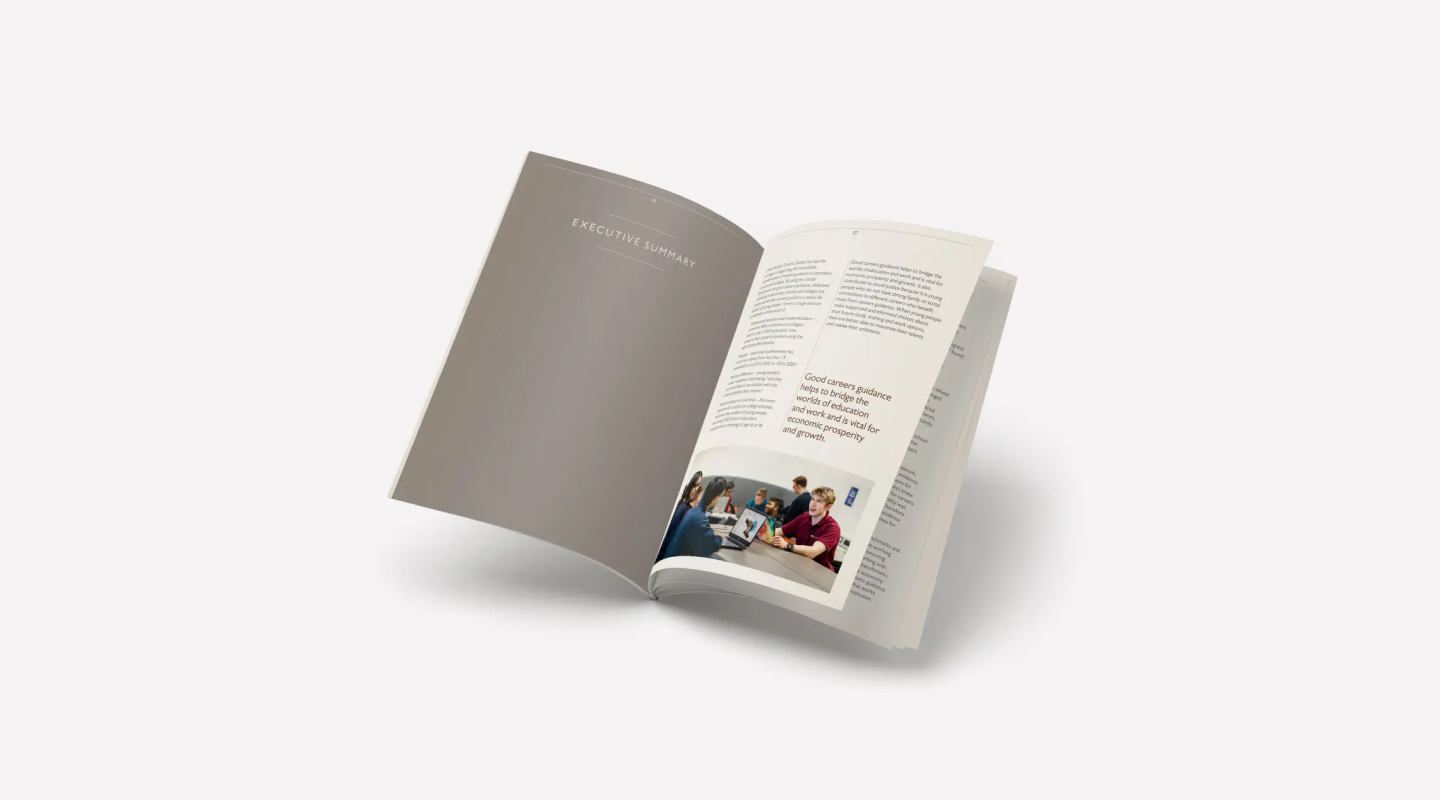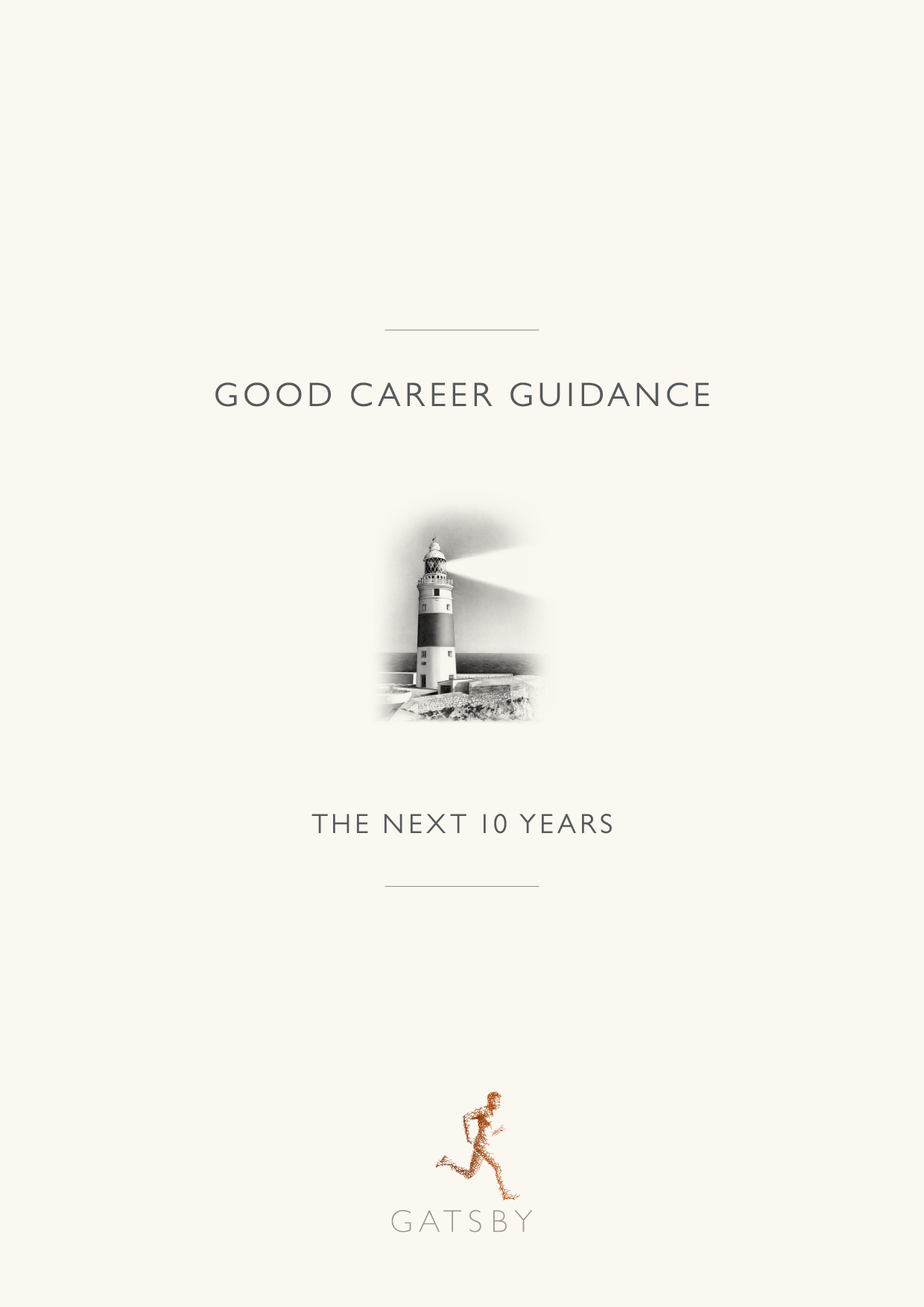A guide toGatsby Benchmark 2
Learning from career and labour market information
All pupils, parents and carers, teachers and staff who support pupils should have access to good-quality, up-to-date information about future pathways, study options and labour market opportunities. Young people with special educational needs and disabilities (SEND) and their parents and carers may require different or additional information. All pupils will need the support of an informed adviser to make the best use of available information.

Criteria for Schools
- During each Key Stage, all pupils should access and use information about careers, pathways and the labour market to inform their own decisions on study options or next steps.
- Parents and carers should be encouraged and supported to access and use information about careers, pathways and the labour market to inform their support for pupils in their care.
All learners, parents and carers subject staff and other staff who support learners, should have access to good-quality, up-to-date information about future pathways, study options and labour market opportunities. Young people with special educational needs and disabilities (SEND) and their parents and carers may require different or additional information. All learners will need the support of an informed adviser to make the best use of available information.

Criteria for Colleges and ITPs
- During their programme of study, all learners should access and use information about careers, pathways and the labour market to inform their own decisions on study options or next steps.
- Parents and carers should be encouraged and supported to access and use information about careers, pathways and the labour market to inform their support for the learners in their care.
Information, opportunities and support need to be tailored and sequenced to meet the needs of each young person with SEND and their families.
Good Career Guidance: The Next 10 Years
Case study: Weston College
Weston College staff have developed strong relationships with employers and their local combined authority to get insights about the local labour market. Senior leaders ensure staff receive annual briefings on trends in the labour market so that these insights can be embedded into curriculum delivery. More broadly, as well as underpinning curriculum design, LMI informs the development of careers resources and events, such as the annual careers convention attended by college learners and a bespoke ‘what’s next?’ event for young people and parents and carers from local schools.
LMI relating to each subject features in the college prospectus to help young people choosing courses. Young people are encouraged to use LMI even before they join the college as a key stage in the applicant journey. As soon as they join the college, learners have ongoing access to an LMI platform throughout their studies so that they can explore sectors and job roles. Their exploration of LMI is recorded on the platform and informs their conversations with tutors, subject staff and careers advisers.
Case study: Talking Futures programme: Helping careers leaders support parents
The Gatsby Foundation and the Careers & Enterprise Company (CEC) have developed Talking Futures, which includes a suite of training and resources that support careers leaders to enhance parent and carer engagement in careers in their institutions. There is also an associated campaign directly aimed at parents.
Some of the training is specifically designed to help careers leaders to plan a progressive learning journey for parents and carers that maps onto the young person’s learning journey. This includes considering when to introduce parents to key sources of high-quality LMI and different pathways at a time that matches when their child will learn about these things, helping them to have more impactful careers conversations.
Jump to Benchmark
Gatsby Benchmark 1
A stable careers programme
Gatsby Benchmark 2
Learning from career and labour market information
Gatsby Benchmark 3
Addressing the needs of each young person
Gatsby Benchmark 4
Linking curriculum learning to careers
Gatsby Benchmark 5
Encounters with employers and employees
Gatsby Benchmark 6
Experiences of workplaces
Gatsby Benchmark 7
Encounters with further and higher education
Gatsby Benchmark 8
Personal guidance

Publications
Browse our full collection of downloadable resources, including the reports themselves, associated appendixes and supporting literature.
